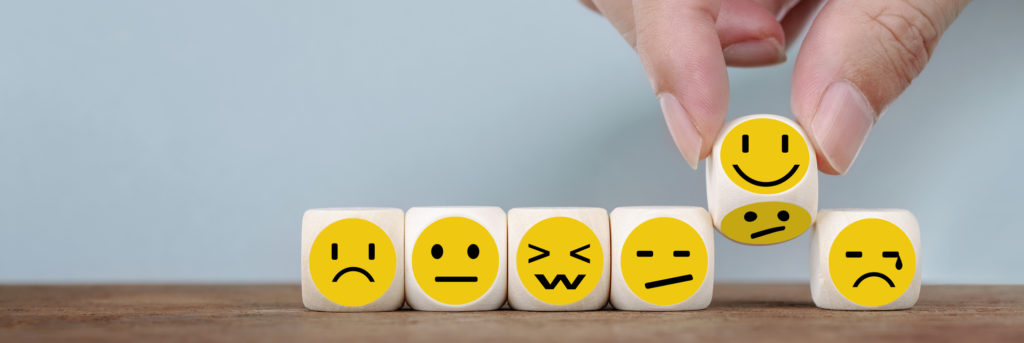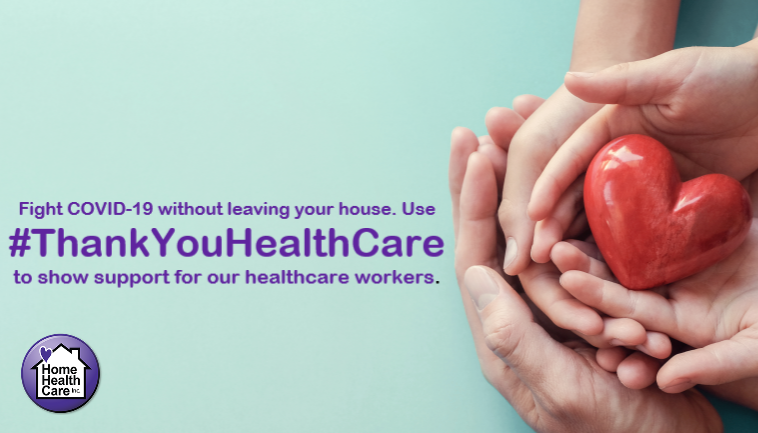If you work in healthcare, chances are you know how to wash your hands and cover your cough. Your biggest challenge right now is to stay sane while meeting the increased demands of your work and home life.
Easy Tips for Staying Sane
During the Coronavirus Pandemic
No matter how you slice it, you’ve got a lot on your plate. As a healthcare worker, you need a quick dose of sanity to get you through your day.
#1. Name your emotions.

Working in healthcare, we often find ourselves pushing our own thoughts and feelings aside so we can focus on the feelings of our patients and helping them get the care they need.
However, when you simply name your emotion (ex. “Wow, I’m feeling frustrated right now”), the feeling can lose its power.
A study at UCLA found that acknowledging emotions, especially negative ones, decreases the activity of the amygdala, which is responsible for igniting our fear response, and increases activity in the right ventrolateral prefrontal cortex, responsible for inhibiting behaviors and processing emotions.
#2. Mind your breath.

Taking a few slow deep breaths can slow our “fight or flight” response, and help to balance our stress hormones like cortisol.
A popular breathing exercise, known as gear shift breathing, consists of inhaling deeply through your nose and exhaling through pursed lips.
You don’t have to be in a yoga studio to do this. You can be at work, in your car, or hiding in the bathroom for a few seconds’ peace.
With each breath you should notice an increase in the amount of air you take in and push out, & feel calmer.
#3. Focus on the good things.

Practicing gratitude has been a big trend in recent years, and it is more than a fad.
The practice of self-directed neuroplasticity is your ability to “re-wire” your brain toward a more optimistic view of life.
Our tendency toward negative thought is part of our inherent desire to survive – the more aware of danger we are, the more likely we are to be able to act, react, and therefore survive.
As we continue to evolve, however, this instinct can lead us down a path of stress-induced health problems.
By simply noticing when something you enjoy is happening, your brain begins to rewire itself towards a more balanced perspective of the world around you.
#4. Hydrate. Eat well.

This one is obvious, of course.
So instead of explaining the benefits, let’s look at easy ways to make it happen.
- Keep a full water bottle in your car.
- Drink a glass of water before each meal.
- Explore ways to incorporate healthier foods into the foods you already love, like adding cooked spinach to mac & cheese, or sneaking zucchini into your favorite fried rice recipe. (The internet is full of recipes like this.)
- Meal plan, meal plan, meal plan.
#5. Get good at getting rest.

Way easier said than done.
As hard as it can be, setting the appropriate amount of time aside for rest is needed to keep you at the top of your game while caring for your patients (not to mention caring for yourself and your loved ones, too!)
Tonight, instead of making a list of all the things you need to get done tomorrow, try to reflect back on the day and think of the good things, big or small, that happened to you that day
(Ex. “Boy, it was nice that the sun was out today”).
It seems silly, but studies show that this simple act can bring you more restful nights… and it helps you our with tip #3!
#6. Try something new.

Have you been wanting to try something new but couldn’t designate the time to do it?
Now’s the time.
Instead of getting sucked into another Netflix series, why not pick up a new hobby?
Or try a well-documented herbal supplement like elderberry or fire cider to boost your immune system?
Trying something new will not only give you an opportunity to benefit from things like herbal teas, it will also help give you something to look forward to and combat feelings of being stuck in the house with nothing to do but watch Netflix
#7 Be prepared.

Self-care doesn’t always mean meditation and bubble baths.
Making preparations can not only help when needed, it can reduce stress ahead of any issue arising.
Make a plan for yourself and/or your family in case of common emergencies as well as for handling the COVID-19 outbreak. For example, meal planning is a great way to minimize the time spent at grocery stores and help mitigate questions of “what’s for dinner?”
No matter how you de-stress, its so important for your health and well-being. At Home Health Care, Inc., we thank you for your work and continued dedication to caring for your patients during this challenging time.



